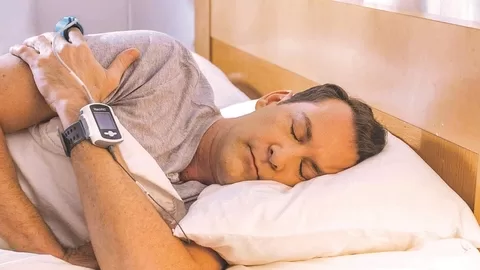
While insomnia and sleep apnea have long been at the forefront of sleep-related discussions, a newer trend is emerging: Idiopathic Hypersomnia (IH). This condition, often misunderstood, is gaining attention as people become more aware of the need for not just quantity, but quality of sleep.
What is Idiopathic Hypersomnia?
Idiopathic Hypersomnia is a neurological sleep disorder characterized by excessive daytime sleepiness despite having an adequate amount of nighttime sleep. Unlike conditions like narcolepsy, where sleep attacks occur suddenly, IH is marked by a persistent and overwhelming need to sleep, even after long sleep durations. Many individuals with IH struggle to wake up in the morning and feel groggy for hours, often referred to as “sleep inertia.”
This condition isn’t just about being tired; it’s about being unable to shake off the sleepiness, no matter how much rest you get. It’s as if the brain’s sleep-wake cycle is stuck in a perpetual state of fatigue. The exact cause of IH is still unknown, hence the term “idiopathic,” meaning the cause is undetermined. However, researchers believe that it may be linked to an imbalance in the brain’s neurotransmitters that regulate wakefulness.
IH can often be mistaken for other sleep disorders or dismissed as general fatigue, leading to misdiagnosis and improper treatment. This makes it crucial for individuals experiencing chronic daytime sleepiness to seek professional evaluation to rule out IH and other sleep-related conditions.
The Rising Awareness of IH in Sleep Health
As more people prioritize their health and well-being, sleep is being recognized as a crucial component of a healthy lifestyle. The rise in awareness about IH is part of a broader trend towards understanding that sleep disorders aren’t just about getting too little sleep, but also about getting too much or not getting restorative sleep. For those living with IH, traditional advice like “just get more sleep” doesn’t apply. Instead, there is a need for a more nuanced approach to sleep health that considers both the quantity and quality of sleep.
The growing awareness of IH is partly due to increased research efforts and a better understanding of sleep disorders. Previously, many people with IH were told they simply needed to sleep more or that their symptoms were a result of poor sleep hygiene. However, it’s now recognized that IH is a complex condition requiring specialized care. This shift in understanding has been a relief for many who have lived with the frustration of unexplained, persistent sleepiness.
In recent years, sleep experts have begun to explore IH as part of the spectrum of sleep disorders that can significantly impact daily life. This has led to increased research and better diagnostic criteria, making it easier for individuals to seek help and for healthcare providers to offer effective treatment plans. Medications, lifestyle changes, and even cognitive behavioral therapy for insomnia (CBT-I) adapted for hypersomnia are some of the strategies being explored to manage IH.
How to Support Healthy Sleep Habits with IH
For those with IH, managing sleep can be challenging, but it is possible with the right strategies.
1. Prioritize a Consistent Sleep Schedule: Maintaining regular sleep and wake times helps regulate your body’s internal clock, even if you still feel excessively sleepy. This consistency can help mitigate the severity of symptoms and improve overall sleep quality.
2. Create a Restful Sleep Environment: Ensure your bedroom is conducive to sleep—dark, cool, and quiet. This helps improve the quality of your sleep, even if the quantity is higher than average. Using blackout curtains, white noise machines, or even sleep masks can make a significant difference.
3. Practice Mindful Sleep Hygiene: Beyond just a consistent schedule, consider your pre-sleep routine. Avoiding caffeine, heavy meals, and screen time before bed can help signal to your body that it’s time to wind down. Relaxation techniques such as deep breathing exercises, gentle yoga, or reading can also prepare your body and mind for sleep.
4. Seek Professional Help: If you suspect you have IH, consult a sleep specialist. Proper diagnosis and treatment can significantly improve your quality of life. Treatment might involve medications to promote wakefulness during the day or strategies to manage the impact of the disorder on your daily life.
5. Educate and Advocate: Understanding IH and how it affects your life is essential, but so is educating those around you. Since IH is less well-known, friends, family, and employers might not understand its impact. Advocating for yourself by explaining the condition and its challenges can lead to a more supportive environment.
While Idiopathic Hypersomnia might be a newer concept in the realm of sleep health, understanding it is essential for those who struggle with unexplained, excessive sleepiness. As we continue to learn more about sleep and its disorders, recognizing and addressing conditions like IH is key to achieving true, restorative rest.
By taking steps to manage symptoms and educating others, those with IH can lead more fulfilling, rested lives. The Alaska Sleep Clinic wants to be part of your sleep solution. Connect for a free consultation.











